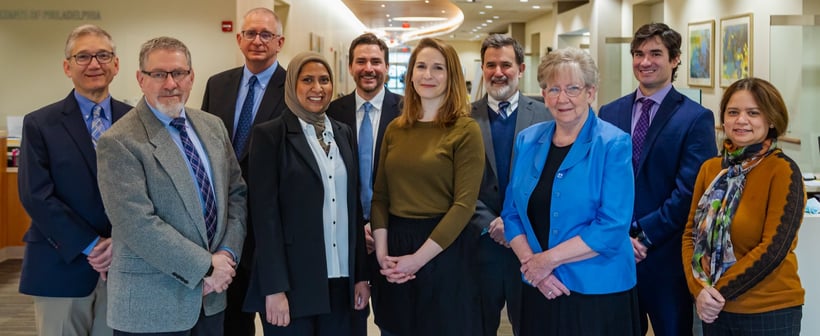Cancer Diagnosis Second Opinions
After a cancer diagnosis, seeking a second opinion is not only wise, but often encouraged before making a decision about which oncologist and the specific cancer treatment plan you will move forward with.
While accurately diagnosing cancer and offering the optimal treatment options is the goal of every oncologist, the approaches they take may differ. A second opinion can confirm what you learned and discussed for a treatment plan with the first oncologist. It can also open up other options than you thought you had. It’s worth the conversation even if you choose to stay with the first oncologist you consulted with.

What is a Medical Second Opinion?
A medical second opinion is simply getting another doctor’s opinion before you begin treatment. To do this, you will meet with a different oncologist — either at the same practice or at a completely different oncology practice. This new specialist will go over your test results, talk about your personal situation, and then offer their opinion regarding the cancer diagnosis and recommended treatments. There may be some additional tests requested by the oncologist giving the second opinion.
While the internet can provide a lot of information, it’s best to get a second opinion from a board-certified oncologist. Getting a second opinion from a reputable oncologist is the best way to make sure you understand your diagnosis and have explored all of your options thoroughly.
Why Get a Second Opinion?
There are various reasons to consider getting a second opinion. Some of the benefits include:
Will I Have to Pay for a Second Opinion?
In most cases, your second opinion will be covered by your insurance plan. In fact, some insurance plans will require a second opinion when a cancer diagnosis is made. For specific information about your insurance coverage, contact your carrier.
What to Expect at Your Second Opinion Appointment
Most oncologists conducting a second opinion appointment will want to see:
-
The details of your diagnosis
-
Blood test results
-
Biopsy results
-
All imaging studies
-
Your recommended treatment plan
If other documentation or tests are needed, the oncologist’s office will let you know.
After reviewing this information, the oncologist giving the second opinion will let you know whether or not they agree with the diagnosis and recommended treatment. If there are other options available for your type and stage of cancer that were not offered already, these can be discussed as options, including the pros and cons of each path.
Will My Oncologist be Insulted if I Get a Second Opinion?
Remember, it’s common for patients to get a second opinion so doctors are very comfortable with the request. In addition, patients should not worry that a doctor will be upset if they decide to seek treatment elsewhere.
At Consultants in Medical Oncology and Hematology, our cancer specialists, nurses, and support staff want you to seek treatment where you're most comfortable. We invite you to schedule an appointment with one of our oncologists for a second opinion at one of our convenient locations in the greater Philadelphia area of Broomall and Glen Mills. We’ll be happy to discuss your diagnosis, the treatment options, and the supportive services available through our practice to help as you progress through treatment.
Our patient schedulers will match you with the oncologist who will be best for your needs, or let us know if you have a specific person in mind based on a friend or family member's recommendation.